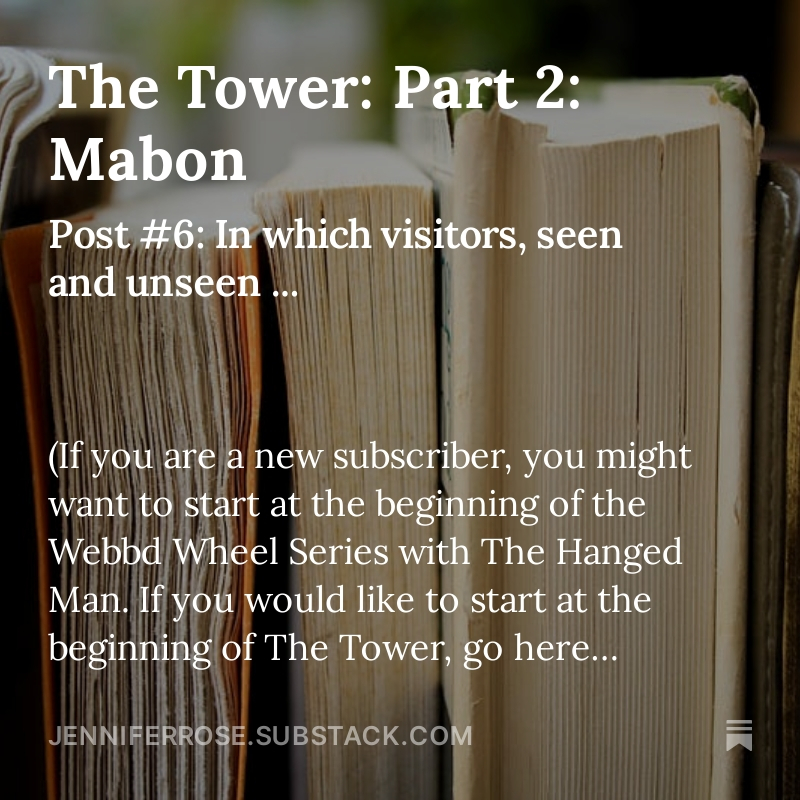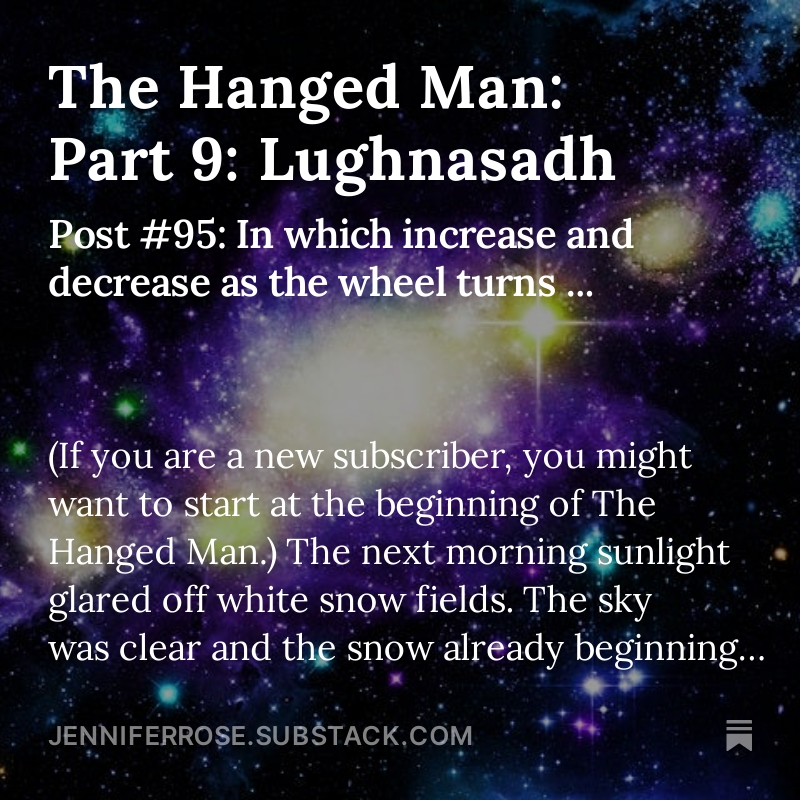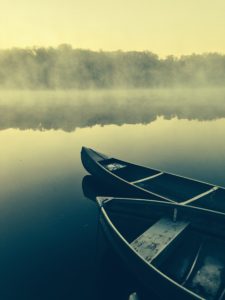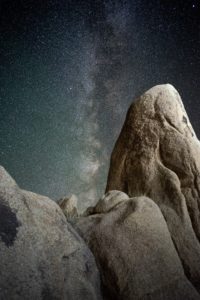by Jenny Rose | Feb 17, 2024 | Authenticity, Emotional Intelligence
Years ago I came across a tip somewhere for getting to know new people in a meaningful (versus social media, digitally-altered images, and dating apps) manner with good questions, one of which is “What would your ideal vacation look like?”
At the time I thought it a great question and I still do. I tried it once without success. Not only was I not asked in return, I received a kind of non-answer along the lines of “I don’t take vacations …” (I wondered why, but it felt intrusive to ask) which didn’t help me get to know the party in question any better! Connection dead on arrival, the story of my life. I retired, abashed.

Photo by Quino Al on Unsplash
Ever since then, I’ve thought about my answer to the question nobody has ever asked me!
I’m thinking about it again because I just picked up Drinking the Rain by Alix Kates Shulman for the first time. It’s a memoir about a woman, about my age, who spends a summer alone in a primitive cabin on an island off the coast of Maine. Primitive means no telephone, no running water, no electricity. She has no transportation aside from her own legs. She finds the experience so satisfying and remarkable she begins to spend all her summers there, for the most part alone.
It also happens to be school vacation week here in Maine, and I hear lots of talk at the pool where I work about planned trips right now. A good friend is taking the week off with her daughter and partner to go to Florida.
Online Oxford Dictionary defines a vacation as “an extended period of leisure and recreation, especially one spent away from home or in traveling.”
Hmmm.
I looked it up because all my life I’ve heard people use the word ‘vacation’ to describe trips and adventures that sounded exhausting and stressful rather than like ‘leisure and recreation’. Of course, it’s not a one-size-fits-all definition. That’s why it’s such a great getting-to-know-you question.
I cannot remember a single vacation I’ve taken with others as a child or adult that wasn’t fraught with tension and stress, and from which I didn’t return far more exhausted and burned out than when I left home.
When people talk about vacations, I shudder.
But once I had a perfect vacation. An incredible period of leisure and recreation away from home. I’ll never forget it.
I was a struggling mother of two school-age sons in an abusive marriage, living in a small town about three hours’ drive from my sons’ father, who was too busy and important to drive to us. For the sake of my boys I therefore drove to their dad twice a month for years and years. A six-hour round trip. This effectively took care of two full weekends a month. I had chronic pain and was always exhausted. My husband had isolated me socially and controlled our finances. My mother and adoptive father had just moved to the small rural town where we lived so I was once again caring for her and my significantly older adoptive father. As Mom was also abusive, I had no respite childcare. I did not trust my husband and tried to keep the kids away from him. I solved the childcare problem by working at their little school, so we had the same schedule.

Photo by Hailey Kean on Unsplash
A friend of mine had a family cabin in the mountains west of town and she offered it to me one summer. I carefully planned for a period of time when the boys would be with their dad, and I went.
The cabin was in an isolated community, mostly of summer places. Here in Maine, it would have been called a “camp.” It had been built on a hill amidst pine trees. No road or other building was in sight. It had running water, but no electricity and no phone. These were the days before cell phones. My friend’s family used oil lamps and candles for light. The hot water heater ran on gas; I had to light the pilot light. The cabin consisted of one large room and a bathroom, with four twin beds in the main room, a fireplace, and a simple open-concept kitchen. The small fridge was also gas, as well as a rudimentary stove. Outside was a large outdoor fireplace and seating area.
I packed a couple of books, a journal, some food and minimal clothes. Nobody but my friend knew the exact location. I was alone.
I was alone! No one could interrupt me. No one could make a demand, tell me I was doing it wrong, hurt me. No one could telephone. No one could have a crisis that only I could solve. I did not have to be responsible for anyone but myself. The relief was indescribable.
It was a beautiful Colorado mountain summer. No bugs, clean air, cool nights, dry weather, abundant sun. I lit pilot lights, unpacked, put a chair in the sun, and undressed.
Yes. I undressed. I wanted to soak up every bit of sun and privacy I possibly could. I got myself a cold drink and went outside with my book, naked as the day I was born. I read for a while. I was reading Elizabeth George at the time, the author of a magnificent mystery series, each book big and fat and long.
I got sleepy in the sun and realized I could take a nap!
I went inside, chose a bed, opened it, cuddled down, and slept for almost two hours. When I got up I was hungry, so I ate. Then I went back out, moved my chair into the afternoon sun, and read some more. When the sun went down I put on clothes for warmth, lit candles, ate again.
It went like that for three blissful days. I took a shower once, and brushed my teeth when I thought of it. I ate and drank when I wanted to. I paid no attention to the time. My hours were bounded by the sun’s movement across the deck. I slept naked and spent the days naked, dressing only in the cool early mornings and evenings. I wrote and read and slept around four hours a day. When it got dark, I slept again. I had never slept like that before and I haven’t since. There seemed no end to my exhaustion and my relief at knowing I was somewhere they couldn’t find me. Nobody needed me. I didn’t have to respond. I was safe. I knew my friend would never tell my husband where I was. The kids were with their dad. It was the first time I’d ever been inaccessible to everyone.

Photo by Cristian Newman on Unsplash
No amount of money could have given me such a respite. No exotic destination could have suited me better than the utter privacy of that old cabin in the pine trees. I have never again experienced that kind of freedom to do nothing, be nothing, and know I would not be interrupted. For me, the word ‘vacation’ will always mean those three days.
I suppose some people would find this pitiable. The thought makes me smile, as it was one of the peak experiences of my life. And that’s my point; that’s why imagining (or remembering) an ideal vacation is so interesting to share with others. Such an exercise points to our longing, and what we wish to escape. I know people who love to travel and go on adventures, enjoy getting away with friends or family. I listen to their plans and stories and marvel at how different we all are, how unique our ideas of fun and what we choose to do with our leisure.
I know other people who are perfectly content at home, who have no desire to get away at all. That’s not me. I love my home, but I’d go somewhere like that cabin in a flash. I’m not so exhausted now, but I’d welcome the same feeling of being out of touch, unavailable, free of the necessity of emotional labor, not because I don’t love my friends, my job, my cats, but because I also love my solitude and one can’t do things like sit naked in the sun and read all day in company! I couldn’t, anyway. I’ve never been able to be all of what I am unless I’m alone.
Questions:
- What would your ideal vacation look like?
- What’s the best vacation you’ve ever had?
- Do you return from vacations rested and renewed or exhausted?
Leave a comment below!
To read my fiction, serially published free every week, go here: 
by Jenny Rose | Nov 25, 2023 | A Flourishing Woman, Body
In the last few months I have noticed a pattern as I teach private swim lessons.
It first caught my attention over the summer as I worked with a six-year-old in her home pool. She and I have worked together for some years. We have a good relationship built on trust and affection. She’s strong and big for her age, and she’s a tiger, assertive, competitive, stubborn, determined. She’s focused on progression through Red Cross Learn-to-Swim levels. She’s less interested in the skill-building than the card proclaiming her a Level ___ swimmer, and she wants the card now.

Photo by Chris Kristiansen on Unsplash
I started out her summer lessons the way I always do, with a review of the skills I knew she had already mastered. Then we began working on next-level skills. Except things fell apart. I began to feel frustrated. Her behavior, instead of sunny and eager (she was always waiting in the water for me until this), became oppositional. She stopped laughing with me. She stopped looking me in the eye. She stopped cooperating. She wouldn’t follow directions, she had to be coaxed into the water, and suddenly it wasn’t fun for either of us.
Her mom and I were puzzled. We agreed to take a couple of weeks off and regroup. My little student seemed relieved. During that time I thought about things and my student had some talks with her parents as we all tried to figure out what was wrong. Young children often lack the language to communicate their difficulties. Adults need to decode the behavior and provide the language.
I threw away my lesson plans for the next level and worked on games incorporating skills she already had. I made sure she knew our next lesson would be games. When I got to her house, she was able to tell me, with her mom’s support, that she didn’t want to learn some of the new skills I was presenting.
I suddenly recalled I was working with a six-year-old. Big, strong, determined, yes. But six years old! The level she and I had reached is typically a skill set nine to eleven-year-olds are working on.
Too much, too fast. Her competitiveness and determination had outstripped her physical and developmental ability, and in my delight in teaching and sharing my love for swimming, I simply forgot what was age-appropriate.
So, we spent the summer playing games and giggling. We practiced all the skills she already had, and we worked on some new ones, too, but she didn’t know that because they were games. If she didn’t like the game, we stopped immediately and did something else. She made up some games, too. We had a lot of fun. She waited in the water for me and pouted when our lessons ended. We were back in business.
I spoke privately with her mom and we agreed to slow down. This little girl needs time. Time to grow. Time to develop. Time to play and simply enjoy the water. Next summer she’ll be seven. If I work with her again, I’ll pay attention. She may be ready for next-level skills. She may not. But this time I’ll adjust more quickly, and she’ll have better language skills, too.
I have been observing this pattern during the autumn months as I teach. Sometimes kids want to learn more but we don’t have a lot more to teach them. Sometimes they want to learn more, or their parents want them to learn more, but they’re simply not ready physically or developmentally. An activity that used to be fun and easy starts to be stressful. Parents are frustrated. I’m not having fun. Children are uncooperative.
I’ve been thinking about time lately because in October I caught COVID for the first time and I’ve been sick ever since. I took good care of myself during COVID, in part because I was too sick to fight it. As I began to feel better, I slowly started exercising again. I didn’t want to slide backwards or develop a secondary infection. I was worried about weight loss and weakness, as well as my fatigue and lack of endurance. I gradually began walking to work again, and doing a mile at a time on the elliptical. I even got back in the pool and did an easy half a mile instead of my usual ¾ of a mile with intermittent sprinting.
I was just beginning to feel better when I got sick again. Not with COVID and not as sick, but I filled up with congestion and started to cough.

Photo by Travis Bozeman on Unsplash
So, it’s been doctor visits. More nasal swab testing. Masks at work. Shortened shifts. Teaching lessons from the deck rather than in the water. No gym. No swimming. No walking to work.
The doctor keeps saying rest. My friends keep saying rest. I am resting, I swear it! I don’t have a lot of choice. If I do housework for an hour I’m worn out. I can rest, but sleep has been hard to come by because when I lie down I start to cough and nothing really stops it. The nights have been hard. And haunted.
I’ve been dreaming about my mother, who died in August. Bad dreams, where she’s in trouble and I’m trying to rescue her. Often we’re in water, which is ridiculous because Mom hated the water. Often we’re in the dark, but I can hear her end-stage breathing and death rattle and I grope through the dream, trying to find her. Sometimes I find her and get my arms around her, but then I wake up. In fact, Mom hated to be touched and I never held her the way I do in my dreams. Only in her deep dementia would she tolerate touch. The dreams hurt me with their promise of loving contact that never happened and now never will happen. I doze in my recliner and wake up weeping.
I want to move, to be at work, to go out and rake leaves, to scrub the kitchen floor. Something. Anything. I trail into the kitchen, make another cup of tea, have another half cup of chicken soup, read a few pages, write a bit. I get in the car to go to work instead of walking (everyone at works frowns at me when they find out I walked), and I’m resentful. I want my life back. I want my strong, fit body back. I want my energy back. I want it back NOW.
And, clearly, I need time. I don’t want it … but I need it. I suppose it doesn’t much matter if my experience is post-COVID, or post-whatever-this-last-virus was or grief or trauma or just getting old (!). Whatever it is, I am not in charge, and my stubbornness and determination are presently more than my physical and perhaps emotional reality can live up to.
Time is enigmatic, isn’t it? We say time heals all wounds. Does it, or does it just give us a chance to process our wounds, to clean them out, breathe on them, bind them up and learn to live with them? How can I help myself? What am I supposed to be doing with all this unwanted time? I think of my little swimmer. She doesn’t need to do anything. She’s perfect. She simply needs to give herself some time to grow. That’s it. Time does the work. Our job is to allow it to do the work.
This is unsatisfying. I’ve read that rest is productive, which makes me mad. It cannot be true. I can’t remember ever feeling loved, valued, or wanted because I rested well. Quite the reverse. (On the other hand, when has unceasing production ever worked to buy love, value, or a sense of being wanted? Never.) I have a feeling Time doesn’t need me to do anything, at least not anything I’m not already doing. Another cup of tea. All the calories I can take in. Rest. Tears. Dreams. Writing. Reading and dozing on the couch with the cats.

Photo by Benjamin Combs on Unsplash
Time.
I worked two days Thanksgiving week before having five days off. My physical upper respiratory symptoms are certainly better. Normal sleep patterns are returning. Yet a dragging fatigue and bewildered feeling remain. “It’s detox,” my massage therapist says. “It’s transformation,” the wisest, deepest part of me says. “It’s rebirth,” my Tarot cards say.
It takes time. Everyone agrees on that one.
I remember my little swim student, outraged tears in her eyes. “I’m still a Level ___, right? You won’t take away my Level ___?”
“No, sweetie. You haven’t lost anything. It’s all still yours. You’re just not quite ready to go on to the next level. You need some time …”
I hugged her and gave her a kiss, told her I’d see her again next summer if she wanted lessons. She believed me, reluctantly. She’s in a dance class this winter. That will distract her, I hope.
Now I need to put my arms around myself. My life is not passing me by. I’ll exercise again. I’ll put the weight back on. I’ll get strong, sleep well, stop coughing.
I just need some more time.
Questions:
- Do you think rest is productive? In what way(s)?
- Do you think of time as an ally or an adversary?
- Do you think time actually heals, or does it just help us come to terms with what is?
- What does rest mean to you?
Leave a comment below!
To read my fiction, serially published free every week, go here: 
by Jenny Rose | Aug 10, 2017 | A Flourishing Woman, The Journey

Photo by Andrew Montgomery on Unsplash
I often imagine life as a river and myself in a boat of my own making, floating on it. I don’t picture a sailboat, having no experience of one, but a small boat that glides with the current and can be paddled. I don’t imagine a single river, but a vast network, far more than I could ever explore in this lifetime. Sometimes it’s a river of water, sometimes a river of stars. Sometimes it’s a river of green moss carving a path through thick forest. Sometimes it’s an air-borne river of leaves and feathers and pieces of sky.
Sometimes it’s a river of stone.
The thing about rivers is they take me where they take me. I can paddle and steer, but whatever river I’m on at any given moment is a living thing in itself. I’m not its master and it doesn’t ask me where I want to go.
Of course, I don’t have to surrender to this kind of movement. I can refuse to make a boat in the first place, refuse to learn how, refuse to try. I can take a short cut and buy a premade boat or jump in someone else’s boat. If I do manage to create a boat, I can still make my way to the shore at any point and stop.
I can always throw myself out of the boat, too … but then I’ll never find out where the river is taking me.
I can also fight with the current.
I know a lot about this.
In the last few days, I’ve been floating on a river of stone.

Photo by Paul Van Cotthem on Unsplash
Stone is very, very, v…e…r…y slow. Oh, it moves, in the deep foundations of life. It shifts and compresses, slips, breaks down, heats and cools. It tells an old, old story, whole volumes of which are faded and weathered into illegibility, or hidden so well I know I’ll never read them. Now and then, though, a period of grace arrives in which I inadvertently enter a river of stone and have an opportunity, which I reject, avoid and try to escape, to hear whispers of stone stories.
During these times, others on the river are out of sight and out of hearing. My calls echo back to

Photo by Milada Vigerova on Unsplash
me off stone canyons and cliffs. I reach out for another in my sleep and wake with bloody knuckles. On the river of stone others do not respond. They don’t follow through. They don’t keep their word. My password doesn’t work. I can’t log on. There is no clarification or confirmation. I’m alone, in my little boat, and I feel adrift and forgotten, unseen and unheard, left behind.
The river of stone tells me a story of foundations, of beginnings, of layers of time and events, of family and tribe. My agenda, my insistence on movement and progress, my puny frustration with things not done, make less impression than a fragile-winged dragonfly that flung itself into the stone’s embrace uncounted aeons ago and flies now forever in the river of stone.
The river of stone is inexorable. It forces me to slow down. It provides me with no distraction and no easy entertainment. Creativity falls into sleep from which I cannot wake it. Those tasks and activities I call “productive” cease. Frantically, I paddle my boat, one side, then the other, until my hands are bloody blistered and my shoulders are a block of pain. All the old demons in my head leap into life, jeering and heckling, joining hands in gleeful celebration, and they have their way with me because I’m trapped in a river of stone.
I accomplish nothing on a list. I write no pages. Plans fall through. I wait too long to walk, and then it rains. Dirty dishes sit on the counter. All I want to do is get lost in an old familiar book — if only I could stay awake long enough!
Then, gradually, frustration, panic and fear exhaust themselves and lie down to rest. I rediscover the beauty of emptiness. I begin to see veins and gems and stardust in the stone around me. I remember the difference between doing and being, and the delicate balance they must maintain. The stone speaks to me of strength, of endurance, of centering and grounding. I give myself to the pause in communication and creative work. I put down the paddle, the oar, stretch out in the boat and rest, dreaming of stone-lipped wells refilling with spring water, dreaming of a spray of words leaping off waves or trailing behind stars in a river ahead, dreaming of friends whose faces I haven’t yet seen and broken connection repaired.
I doze, rocked in a cradle of stone. I rest, floating on a river of rock. I sink into the slow, deep, stony heartbeat in the center of all things, imagine inhalations and exhalations, each lasting 100,000 years.

Photo by Brent Cox on Unsplash
I surrender to the river of stone, and in doing so I float out of it.
All content on this site ©2017
Jennifer Rose
except where otherwise noted











